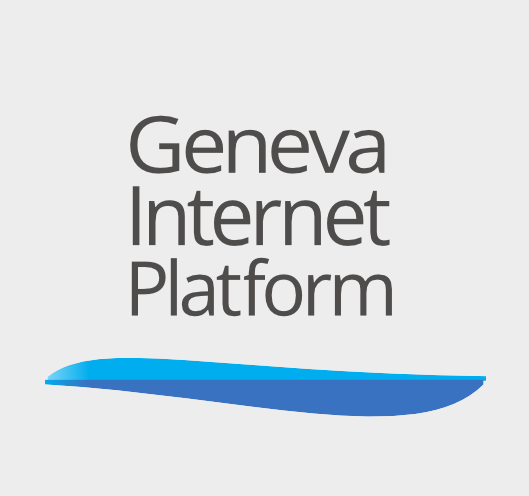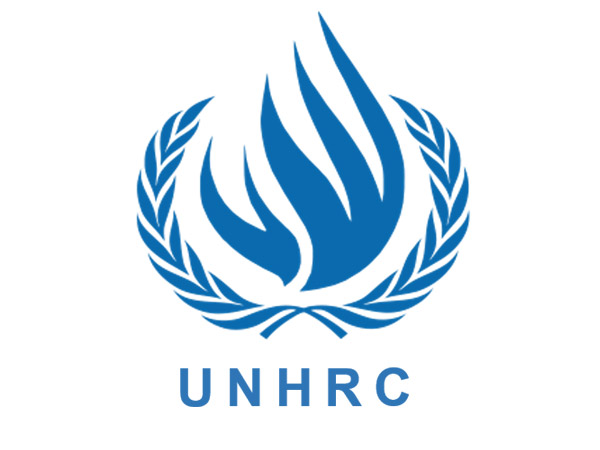Acronym: WTO
Established: 1995
Address: Centre William Rappard, Rue de Lausanne 154, 1211 Geneva 21, Switzerland
Stakeholder group: International and regional organisations
WTO is an intergovernmental organisation that deals with the rules of trade among its members. Its main functions include administering WTO trade agreements, providing a forum for trade negotiations, settling trade disputes, monitoring national trade policies, providing technical assistance and training for developing countries, and ensuring cooperation with other international organisations.
WTO members have negotiated and agreed upon rules regulating international trade, fostering transparency and predictability in the international trading system. The main agreements are the Marrakesh Agreement Establishing the WTO, the General Agreement on Tariffs and Trade (GATT), the General Agreement on Trade in Services (GATS), and the Agreement on Trade-related Aspects of Intellectual Property Rights (TRIPS Agreement).
Digital activities
Several internet governance and digital trade policy-related issues are discussed in WTO. E-commerce discussions are ongoing under the Work Programme on Electronic Commerce and among a group of 90 WTO members currently negotiating e-commerce rules under the Joint Statement Initiative (JSI) on E-commerce. Discussions focus on several digital issues, including data flows and data localisation, source code, cybersecurity, privacy, consumer protection, capacity building, and customs duties on electronic transmissions.
As part of its outreach activities, WTO organises numerous events such as the Aid for Trade Global Review and an annual Public Forum, which brings together governments, non-governmental organisations (NGOs), academics, businesses, and other stakeholders for discussions on a broad range of issues, including many relating to the digital economy.
Digital policy issues
Telecommunications
In 1997, WTO members successfully concluded negotiations on market access for basic telecommunications services, which resulted in new specific commitments in the sector for a significant part of WTO membership. These negotiations also resulted in the Reference Paper, a set of regulatory principles for basic telecommunication services that various members have inscribed in their schedules of commitments. Since 1997, the number of members that have undertaken market access commitments on telecommunications and subscribed to the Reference Paper has continued to increase as a result of new governments joining WTO through the process of accession. Under the JSI negotiations, participants are discussing a proposal that seeks to update the provisions of the Reference Paper.
Digital standards The issue of digital standards is addressed as ‘standards and regulations’ within the work of WTO.
International standards are important to the global digital economy as they can enable interconnectivity and interoperability for telecommunications and internet infrastructures. The WTO Technical Barriers to Trade Agreement (TBT Agreement) aims to ensure that technical regulations, standards, and conformity assessment procedures affecting trade in goods (including telecommunications products) are non-discriminatory and do not create unnecessary obstacles to trade. The TBT Agreement strongly encourages that such regulatory measures be based on relevant international standards. The TBT Committee serves as a forum where governments discuss and address concerns with specific regulations, including those affecting digital trade. Examples of relevant TBT measures notified to or discussed at the TBT Committee include (1) measures addressing the internet of things (IoT) and related devices in terms of their safety, interoperability, national security/cybersecurity, performance, and quality; (2) measures regulating 5G cellular network technology for reasons related to, among others, national security and interoperability; (3) measures regulating 3D printing (additive manufacturing) devices; (4) measures regulating drones (small unmanned aircraft systems) due to risks for humans/consumers, interoperability problems, and national security risks; and (5) measures dealing with autonomous vehicles, mostly concerned with their safety and performance.
Cybersecurity
Cybersecurity issues have been addressed in several WTO bodies. For example, the TBT Committee has discussed national cybersecurity regulations applicable to information and communications technology (ICT) products and their potential impact on trade. In the TBT Committee, WTO members have raised specific trade concerns related to cybersecurity regulations. Some of the specific issues discussed include how cybersecurity regulations discriminating against foreign companies and technologies can negatively impact international trade in ICT products. Proposals on cybersecurity have also been tabled in the JSI on e-commerce where negotiations are ongoing.
Data governance
The growth of the global digital economy is fuelled by data. Discussions on how provisions of WTO agreements apply to data flows are ongoing among WTO members. In this context, is particularly relevant, as it applies to trade in services such as (1) data transmission and data processing by any form of technology (e.g. mobile or cloud technologies); (2) new ICT business models such as infrastructure as a service (IaaS); (3) online distribution services e.g. (e-commerce market platforms); and (4) financial services such as mobile payments. The extent to which members can impose restrictions on data or information flows affecting trade in services is determined by their GATS schedules of commitments. Under the JSI, proposals on cross-border data flows have been submitted and are being discussed. These proposals envision a general rule establishing the free flow of data for commercial activities. Proposed exceptions to this general rule are, to a large extent, similar to the existing GATS General and Security Exceptions and relate to, for example, protection of personal data, protection of legitimate public policy objectives, national security interests, and exclusion of governmental data. Issues related to data flows have also been raised by members in other contexts at the WTO, such as in the Council for Trade in Services, for instance, when national cybersecurity measures adopted have been considered by some members as trade barriers.
Intellectual property rights
The TRIPS Agreement is a key international instrument for the protection of IP and is of relevance to e-commerce. The technologies that underpin the internet and enable digital commerce such as software, routers, networks, switches, and user interfaces are protected by IP. In addition, e-commerce transactions can involve digital products with IP-protected content, such as e-books, software, or blueprints for 3D-printing. As IP licences often regulate the usage rights for such intangible digital products, the TRIPS Agreement and the international IP Conventions provide much of the legal infrastructure for digital trade.
These conventions include:
- Paris Convention for the Protection of Industrial Property (1967)
- Berne Convention for the Protection of Literary and Artistic works (1971)
- International Convention for the Protection of Performers, Producers of Phonograms and Broadcasting Organizations (the Rome Convention) (1961)
- Treaty on Intellectual Property in Respect of Integrated Circuits (1989)
The role of IP in promoting innovation and trade in the digital age has been highlighted in recent WTO World Trade Reports.
Electronic commerce
WTO agreements cover a broad spectrum of trade topics, including some related to e-commerce, which has been on the WTO agenda since 1998 when the ministers adopted the Declaration on Global Electronic Commerce. The Declaration instructed the General Council to establish a Work Programme on electronic commerce. In that Declaration, members also agreed to continue the practice of not imposing customs duties on electronic transmissions (the ’moratorium’). The Work Programme provides a broad definition of e-commerce and instructs four WTO bodies (Council for Trade in Goods; Council for Trade in Services; TRIPS Council; and the Committee on Trade and Development) to explore the relationship between WTO Agreements and e-commerce. The Work Programme and the moratorium on customs duties on electronic transmissions have been periodically reviewed and renewed. At its recently concluded 12th Ministerial Conference (MC12) in June 2022, WTO members agreed to reinvigorate the Work Programme, particularly in line with its development dimension, and to intensify discussions on the moratorium, including on its scope, definition, and impact. Furthermore, members agreed to extend the moratorium on customs duties on electronic transmissions until MC13.
At MC11 in 2017, a group of members issued the Joint Statement Initiative (JSI) on E-Commerce to explore work towards future WTO negotiations on trade-related aspects of e-commerce. Following the exploratory work, in January 2019, 76 members confirmed their ‘intention to commence WTO negotiations on trade-related aspects of electronic commerce’ and to ‘achieve a high standard out- come that builds on existing WTO agreements and frameworks with the participation of as many WTO members as possible’. Negotiations are continuing among 90 members
Access The issue of arbitration is referred to under the issue of ‘market access’ within the work of WTO.
Information Technology Agreement (ITA-I and ITA-II)
The ITA-I was concluded by 29 participants in 1996. Through this agreement, participating WTO members eliminated tariffs and other duties and charges (ODCs) on hundreds of ICT products – including computers, laptops, servers, routers, communication devices (i.e. mobile telephones), semiconductors, semiconductor manufacturing equipment and parts thereof – to foster the development of ICT global value chains and facilitate greater adoption of the ICT products that lie at the core of a global digital economy and power the downstream innovative and competitive capacity of every industry that deploys them. Currently, 83 WTO members are participants in ITA-I, accounting for approximately 97% of world trade in ITA-I products. As technology continues to evolve, ICT is found at the core of an ever-increasing range of products. At the MC10 in Nairobi in 2015, over 50 WTO members concluded ITA-II negotiations and agreed to expand the ITA product coverage by around 200 products. ICT products such as GPS navigation equipment, satellites, and medical equipment were included and tariffs on these products have been eliminated among ITA-II participants. At present, the ITA-II consists of 55 WTO members, representing over 90% of world trade in ITA-II products. The ITA is being discussed in the JSI under the market access focus group.








Social medial channelstest test
Facebook @WorldTradeOrganization
Flickr @WorldTradeOrganization
Instagram @worldtradeorganization
Twitter @wto
YouTube @WorldTradeOrganization